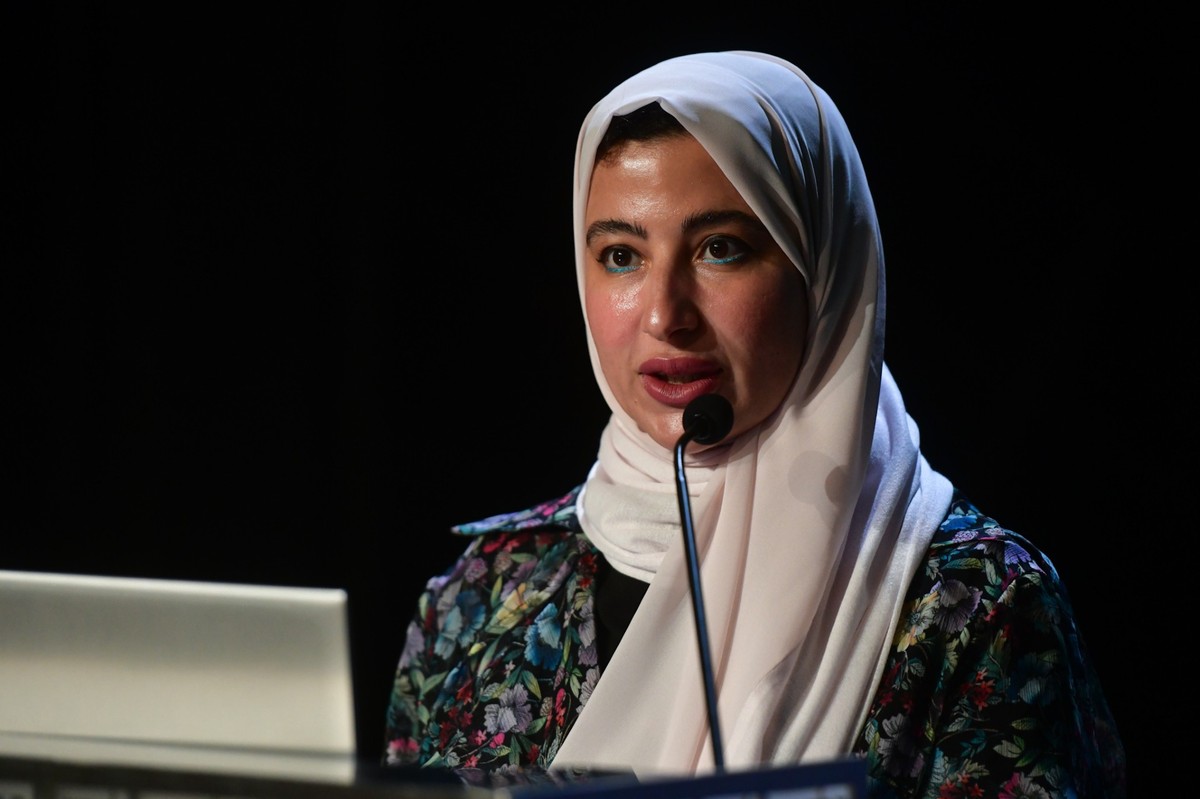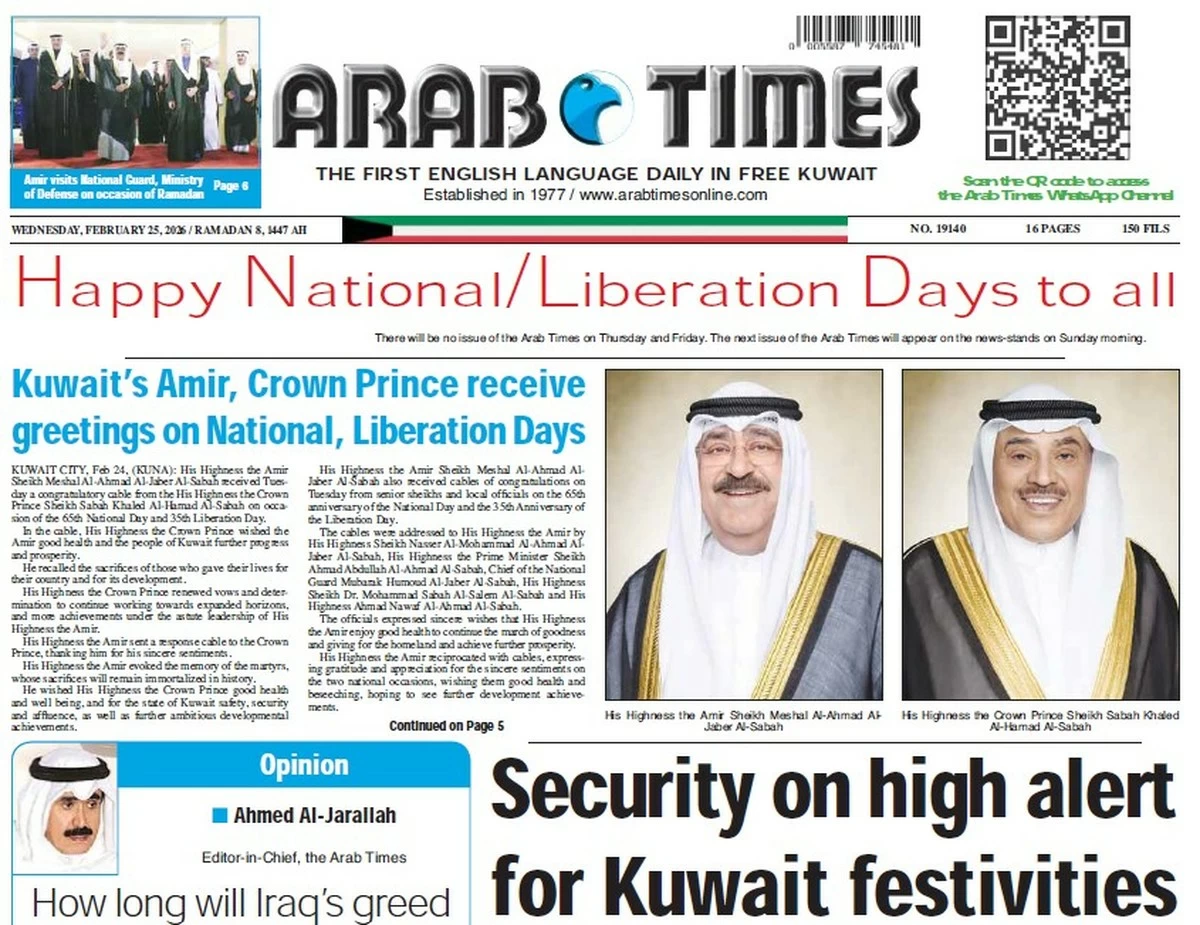26/05/2025
26/05/2025

KUWAIT CITY, May 26: The forum titled “Classical Arabic Thought in Contemporary Global Research” opened Monday at the Yarmouk Cultural Center. The event is jointly organized by the National Council for Culture, Arts and Letters (NCCAL), the French Center for Research in the Arabian Peninsula (CERAP), and Dar al-Athar al-Islamiyyah.
In her opening remarks, NCCAL Assistant Secretary General for Culture Aisha Al-Mahmoud described the forum as a “milestone” that underscores Kuwait’s cultural leadership as the Arab Capital of Culture and Media for 2025. She emphasized the forum’s role in highlighting the recent transformations in the study of Arab intellectual heritage.
Al-Mahmoud noted that the past few years have witnessed a "qualitative renaissance" in the study of classical Arabic thought. She explained that contemporary research has moved beyond traditional investigation and publication, entering new analytical contexts that employ modern methodologies and explore the historical and social dimensions of heritage texts.
She added that the event brings together researchers from various generations, representing a wide range of Arab and international universities and research institutions. The forum, she said, aims to foster the exchange of ideas and promote scientific collaboration in intellectual and philosophical studies.
Expressing gratitude to all participating institutions and contributors, Al-Mahmoud stressed that such events elevate Kuwait’s profile on the Arab and global cultural stage and contribute to advancing scientific research in the fields of heritage and knowledge.
French Ambassador to Kuwait Olivier Gauvin also addressed the gathering, emphasizing the importance of research and cultural cooperation between France and Kuwait. He praised the partnership between CERAP and NCCAL in heritage preservation and in strengthening mutual understanding of Islamic culture.
Gauvin described the conference as a significant milestone in the long-standing French-Kuwaiti friendship. He noted that the French Institute for Islamic Studies, established by the French Presidency, aims to deepen the understanding of Islam. Events like this forum, he added, support that mission by assembling leading researchers and experts in the fields of manuscript studies and intellectual history.
The ambassador highlighted the importance of showcasing the vast troves of uncatalogued and untranslated Arabic manuscripts, many of which remain scattered across global libraries and private collections. He pointed out that the French National Library alone holds over 7,000 Arabic manuscripts—underscoring the critical need for documentation and preservation efforts.
He also called for stronger academic dialogue between Arab and European scholars, noting Kuwait’s historic role in fostering critical thought and intercultural engagement, particularly in light of its 2025 designation as the Arab Capital of Culture and Media.
Dr. Pierre Cayle, Director of the French Institute for Islamic Studies, spoke about the need to emphasize cultural and intellectual dimensions that promote mutual understanding. He said scholarly work on texts and heritage opens “new horizons for a deeper understanding of cultures,” and emphasized that continued academic cooperation is essential to renewing knowledge and preserving the shared human heritage.
Dr. Makram Abbas, Director of CERAP, said the conference addresses a broad range of research themes, including library science, heritage preservation, and manuscript care within national institutions. He also highlighted how scientific discoveries have reshaped conventional understandings and inspired reinterpretations of classical Arab thought.
Conference host Dr. Reem Al-Rudaini, Associate Professor of Islamic History at Kuwait University, remarked that the study of classical Arab thought has seen increased richness and dynamism in recent years. She noted that while global transformations have occurred in fields such as philosophy, science, and literature since the early 20th century, the sheer breadth and diversity of contemporary studies in these areas form a unique phenomenon deserving careful attention.
The three-day international conference aims to explore these transformations in depth. The program includes a series of scientific sessions focusing on indexing, critical analysis, and modern readings of manuscripts and key intellectual works within Arab and Islamic civilizations.


